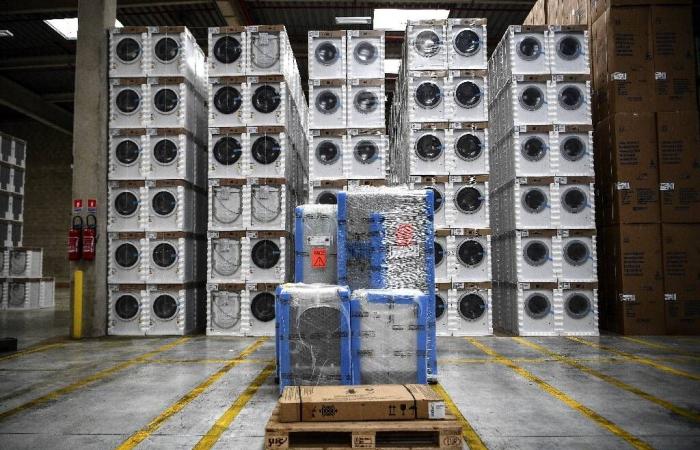
Ten manufacturers and two distributors of household appliances were sanctioned this Thursday by the Competition Authority for having prevented consumers from “benefit from more attractive prices for the purchase of their products”.
In total, companies will have to pay 611 million euros in fines for these agreements “vertical” (between suppliers and distributors and not between competing companies) implemented between February 2007 and December 2014, to “reduce competition, particularly from online distributors, and maintain high sales prices for consumers”according to a press release from the Authority.
The means put in place ranged from banning the sale of certain products on the internet, with “blacklists”, to the communication of “recommended retail prices” by manufacturers to distributors with “coded language to hide price instructions”.
Manufacturers and suppliers then ensured through monitoring “sometimes daily” compliance with these instructions. They took “directly contact, often orally, with their distributors in order to ask them to raise resale prices” with the help of obvious innuendoes: “If you want to receive the product, you know what to do”we can read in the press release from the Competition Authority.
In the event of non-compliance, they did not hesitate to “resort to retaliatory measures (delays and stoppages of deliveries, implementation of exclusive sales systems, etc.)” towards distributors.
“These practices have thus eliminated the competition intra-brand at the time of the development of internet sales, preventing consumers from benefiting from more attractive prices for the purchase of their small and large household appliance products”, denounces the Competition Authority.
The emergence, at the end of the 2000s, of sites reselling products at “cut prices” worried traditional manufacturers and distributors.
Distributors exclusively active on the internet claimed to have been discriminated against if they did not have physical stores. As a result, many of them have “disappeared or been bought by traditional distributors”.
“Quickly put an end to a complex procedure”
The manufacturers concerned are BSH (joint venture between Siemens and Bosch, purchased entirely by the latter in 2014), Candy Hoover, Eberhardt, Electrolux, Whirlpool (as successor to Indesit and as manufacturer during the relevant period), LG, Miele, Seb, Smeg et Whirlpool.
The distributors, which the Authority emphasizes could, due to their weight, “put an end to anti-competitive practices”are Boulanger et Dartyrespectively sanctioned to the tune of 84.35 million and 109 million euros.
“Traditional distributors including the two main ones, Darty and Boulanger, fully participated in these agreements”, underlines the regulator.
They wanted to make sure that “the products they sold would not be significantly cheaper elsewhere, particularly online” and even asked manufacturers to act when this was the case.
Fnac Darty indicates in a press release that it has provisioned, from the first half of 2023, 84 million euros in anticipation of this sanction and that it would recognize “an additional charge of 24 million euros for the 2024 financial year, with no impact on current operating income”.
Like nine others, Fnac Darty had decided not to not contest the grievance notified by the Competition Authority pour “quickly end a complex procedure” and devote himself to his “strategic plan”.
The manufacturer Seb, who received the heaviest fine, of 189.5 million euros, and Boulanger had chosen to contest the grievances. In a press release, Seb announced that he “will form a appeal“ before the court of appeal, rejecting “any allegation that its practices did not comply with competition rules”.
Electrolux, for its part, took note of the sanction (44.5 million euros), provisioned in its accounts from 2023.
A first sanction, totaling 189 million euros, was pronounced in 2018 in the same case against six of the manufacturers (BSH, Whirlpool, Indesit, Electrolux, Candy Hoover and Eberhardt Frères) for cartel practices. horizontal, that is to say between competing companies.
In its decision on Thursday, the Authority clarified that it did not uphold the complaint which accused the manufacturers of carrying out, horizontally via a tool made available by their professional union, to exchange data.





